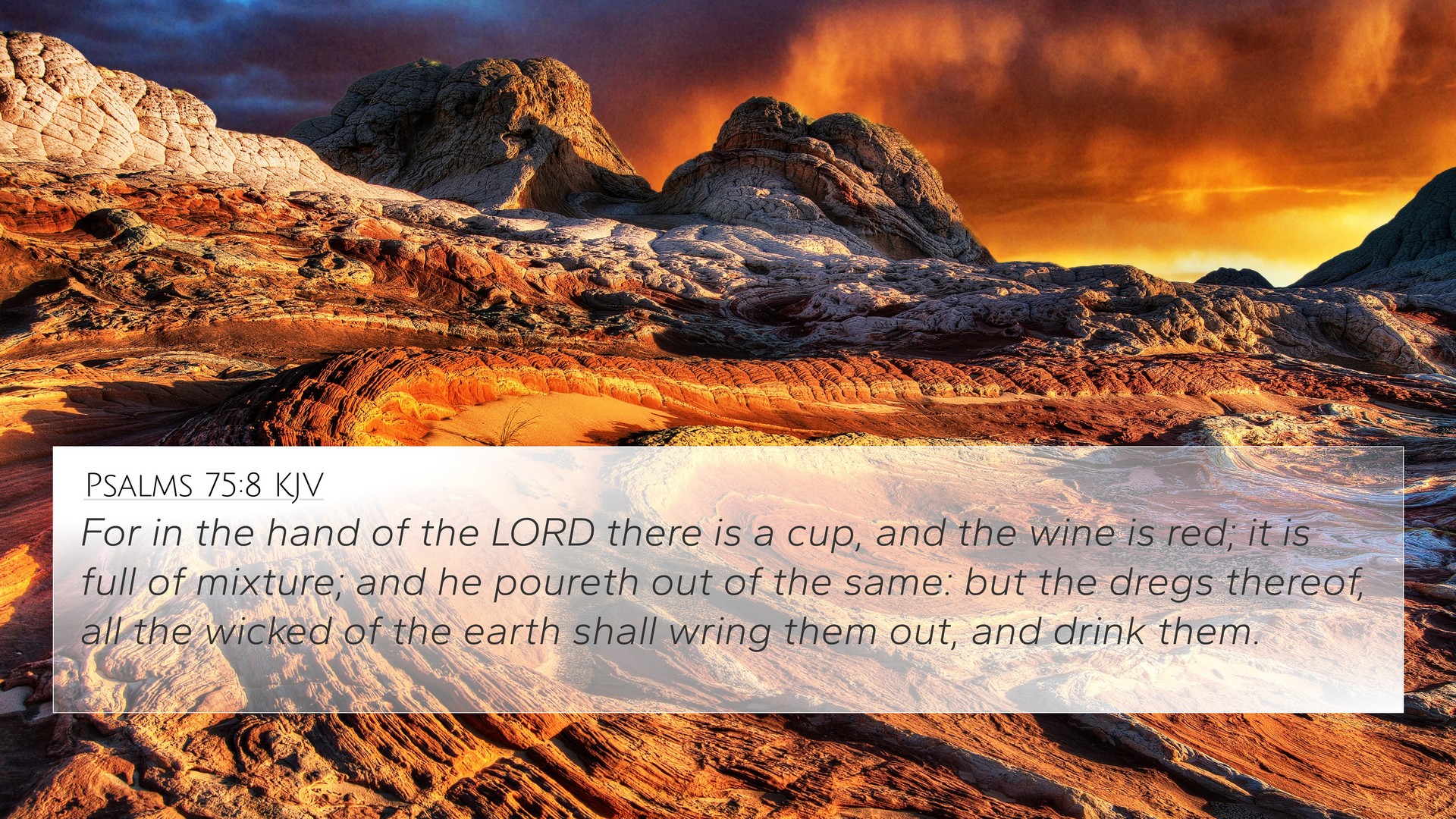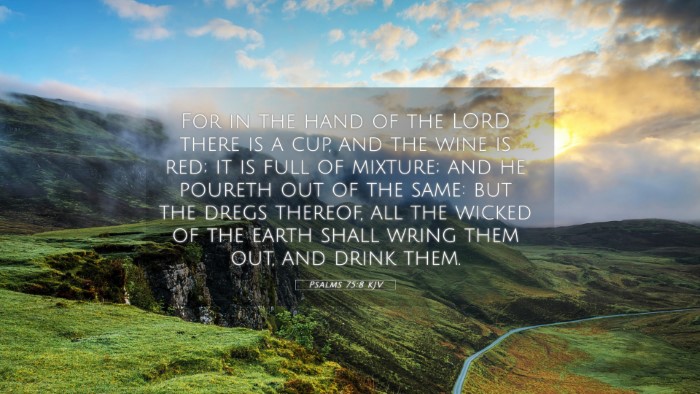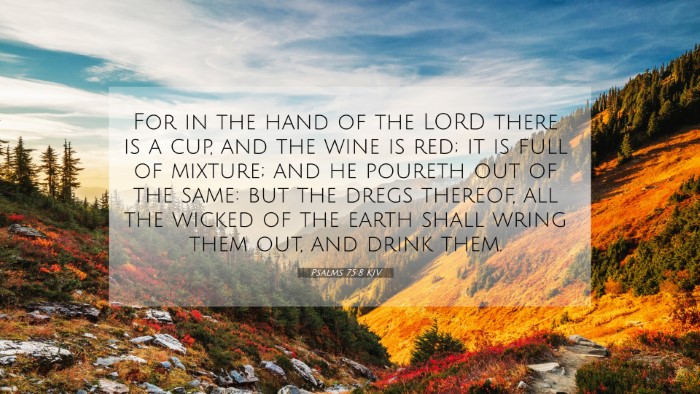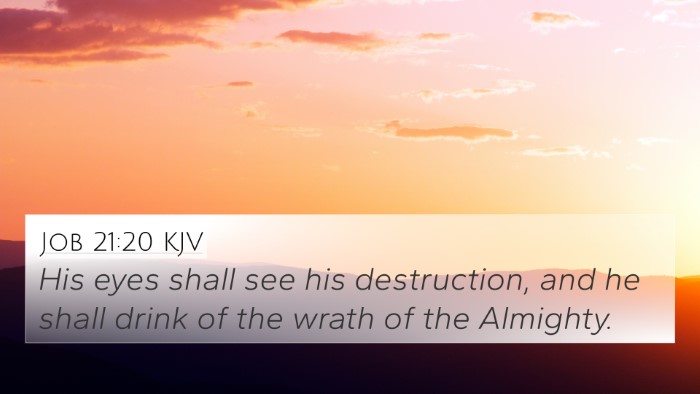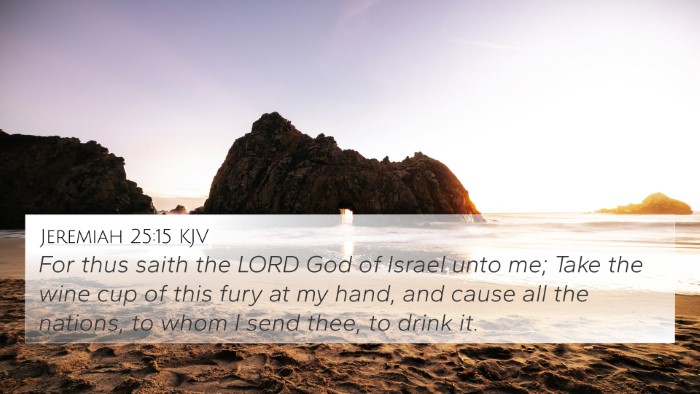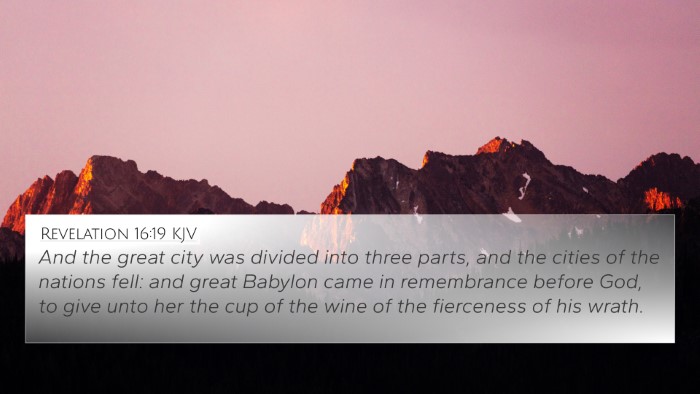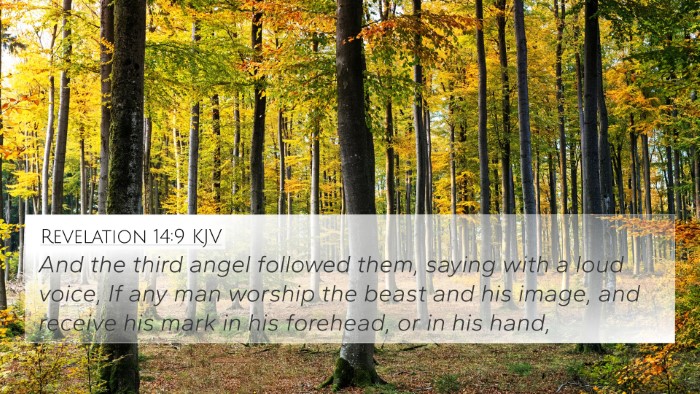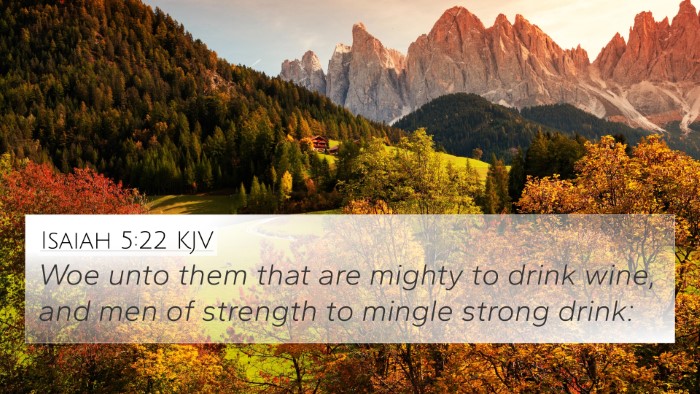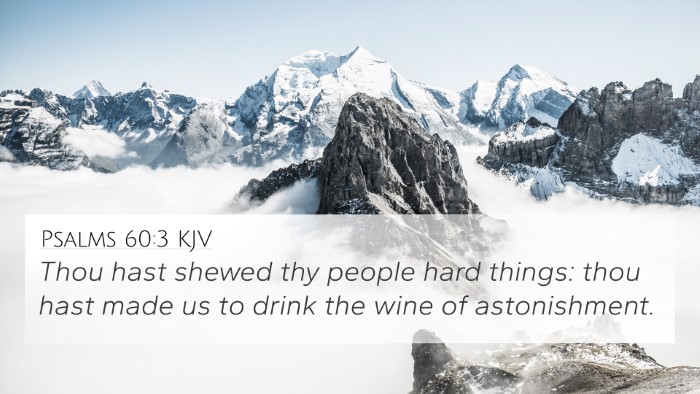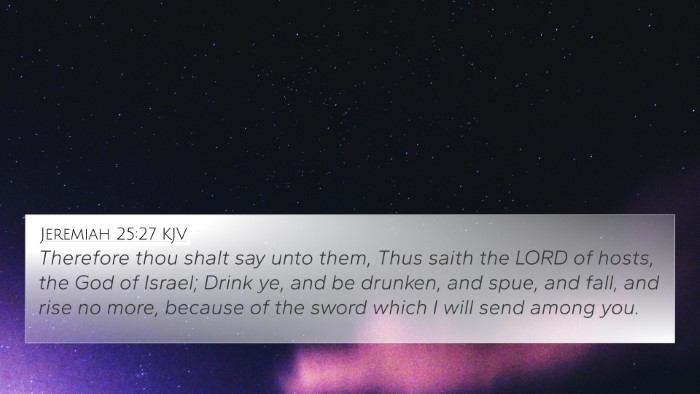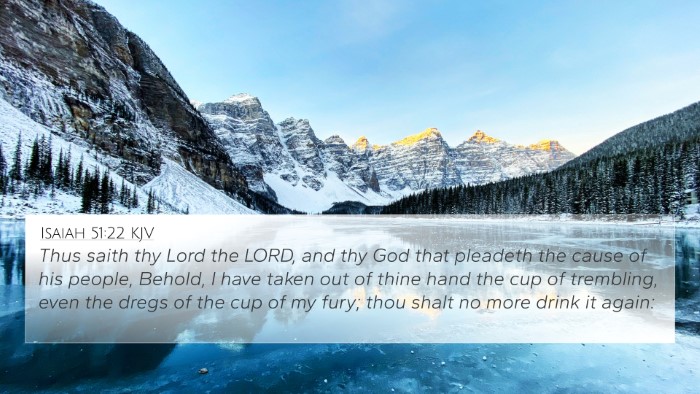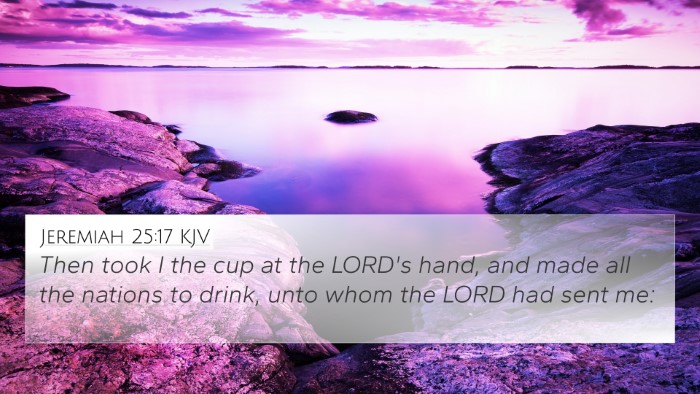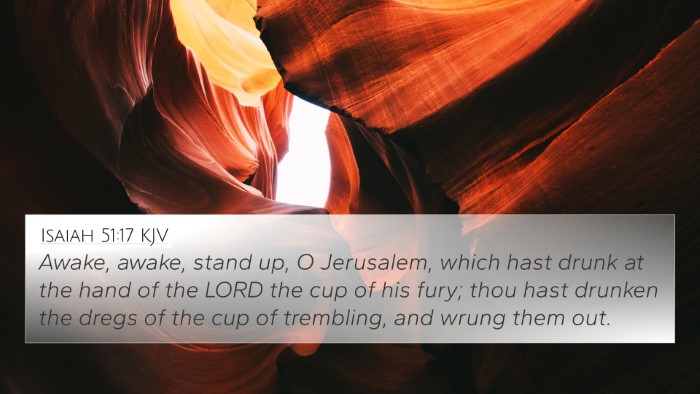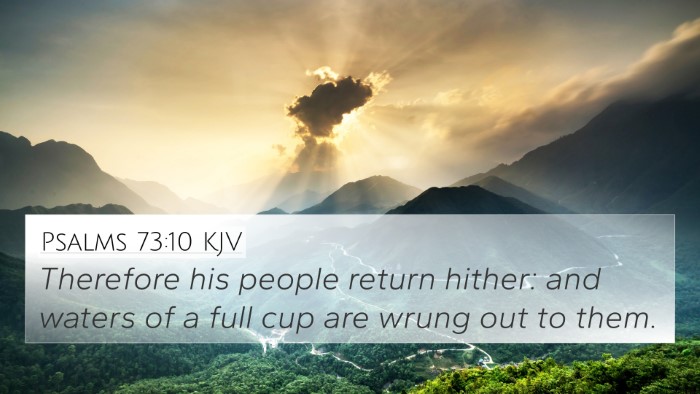Psalms 75:8 - Explanation and Insights
Psalms 75:8 states, "For in the hand of the LORD there is a cup, and the wine is red; it is full of mixture; and he poureth out of the same: but the dregs thereof, all the wicked of the earth shall wring them out, and drink them."
This verse is rich in metaphor and symbolism, revealing profound truths about divine justice and the fate of the wicked.
Summary of the Verse
The verse describes a cup held by the LORD, filled with wine that represents judgment. The imagery of the cup, especially with its reference to being filled with "mixture," illustrates the complexity of God's justice and the suffering destined for the wicked.
Commentary Insights
Matthew Henry
According to Matthew Henry, the cup here represents God's wrath against the wicked—a common biblical metaphor. He explains that this 'wine' signifies the judgments that will be meted out and emphasizes the certainty of divine retribution.
Albert Barnes
Albert Barnes further highlights that the "dregs" of the cup illustrate the bitter consequences of wickedness. He interprets the act of wringing out the dregs as a metaphor for the full experience of God's judgment, illustrating that the wicked will face the entirety of divine wrath.
Adam Clarke
Adam Clarke elaborates on the symbolism involved by noting that the mixture represents the inflexible and inevitable justice of God. He suggests that the verse serves as a warning to the wicked and a reassurance to the righteous about the ultimate triumph of divine justice.
Bible Verse Cross-References
This verse can be understood in conjunction with several other scriptures that reflect similar themes:
- Isaiah 51:17: "Awake, awake! Stand up, O Jerusalem, you who have drunk at the hand of the LORD the cup of His fury."
- Revelation 14:10: "He also will drink of the wine of God’s wrath, poured full strength into the cup of His anger."
- Psalm 11:6: "Upon the wicked he shall rain snares, fire and brimstone, and a horrible tempest."
- Jeremiah 25:15: "Thus says the LORD God of Israel to me: 'Take this wine cup of fury from My hand, and cause all the nations to whom I send you to drink it.'
- Ezekiel 23:31-34: This passage illustrates the nature of divine retribution and judgment upon nations and individuals.
- Matthew 26:39: Referring to Jesus' prayer in Gethsemane, this verse reveals the struggle with the 'cup' of suffering, paralleling divine judgment.
- Romans 2:5: "But according to your hardness and your impenitent heart you are treasuring up for yourself wrath in the day of wrath."
- Mark 10:38: Jesus speaks of the cup He will drink, relating back to the cup of divine judgment and suffering.
- Lamentations 4:21: "Rejoice and be glad, O daughter of Edom, you who dwell in the land of Uz! The cup shall also pass over to you, and you shall become drunk and make yourself naked."
- Galatians 6:7: "Do not be deceived, God is not mocked; for whatever a man sows, that he will also reap."
Thematic Connections
Thematically, Psalms 75:8 connects with the overall biblical teaching on justice, judgment, and the ultimate fate of the wicked. The cup represents God's judgment that is thoroughly described throughout the scriptures, linking numerous passages across both the Old and New Testaments.
Understanding Judgement through Cross-Referencing
Utilizing tools for Bible cross-referencing greatly enhances our understanding of themes like justice and divine wrath. Here are some methods to explore:
- Bible Concordance: Use a concordance to find keywords like "cup," "wrath," and "judgment" to uncover related verses.
- Cross-Reference Bible Study: Engaging in group studies can facilitate deeper discussion and insight into interconnected verses.
- Inter-Biblical Dialogue: Analyzing how the themes in Psalms 75 correspond with the messages of the Prophets and the New Testament is crucial for comprehensive understanding.
Conclusion
Psalms 75:8 serves as a reminder of God's sovereignty, justice, and the consequences of wickedness. It invites readers to reflect on the reality of divine judgment while encouraging them to seek deeper connections among the scriptures through the practice of cross-referencing.
This guide can assist those looking for Bible verse interpretations, providing foundational insights and highlighting related verses for further exploration.
